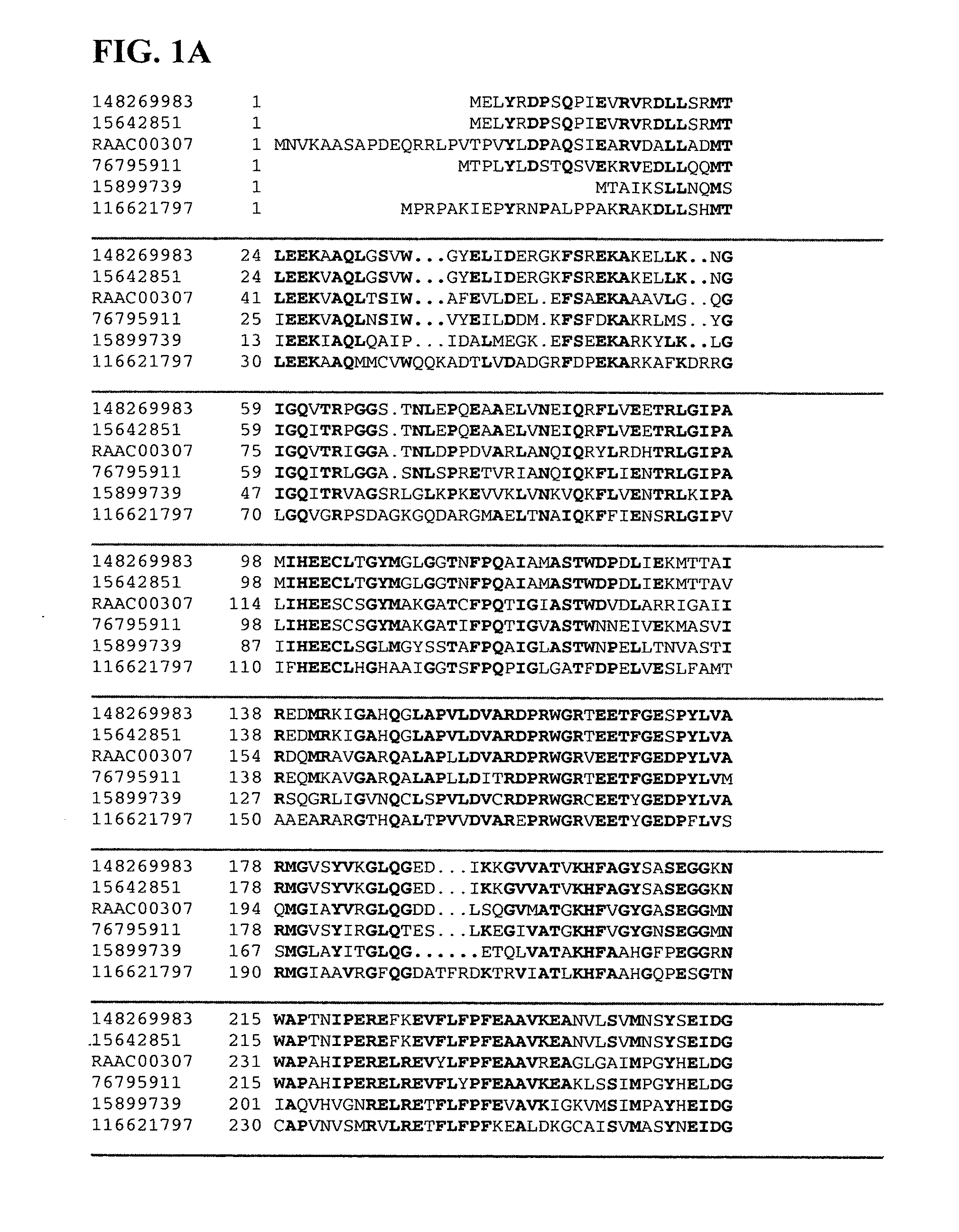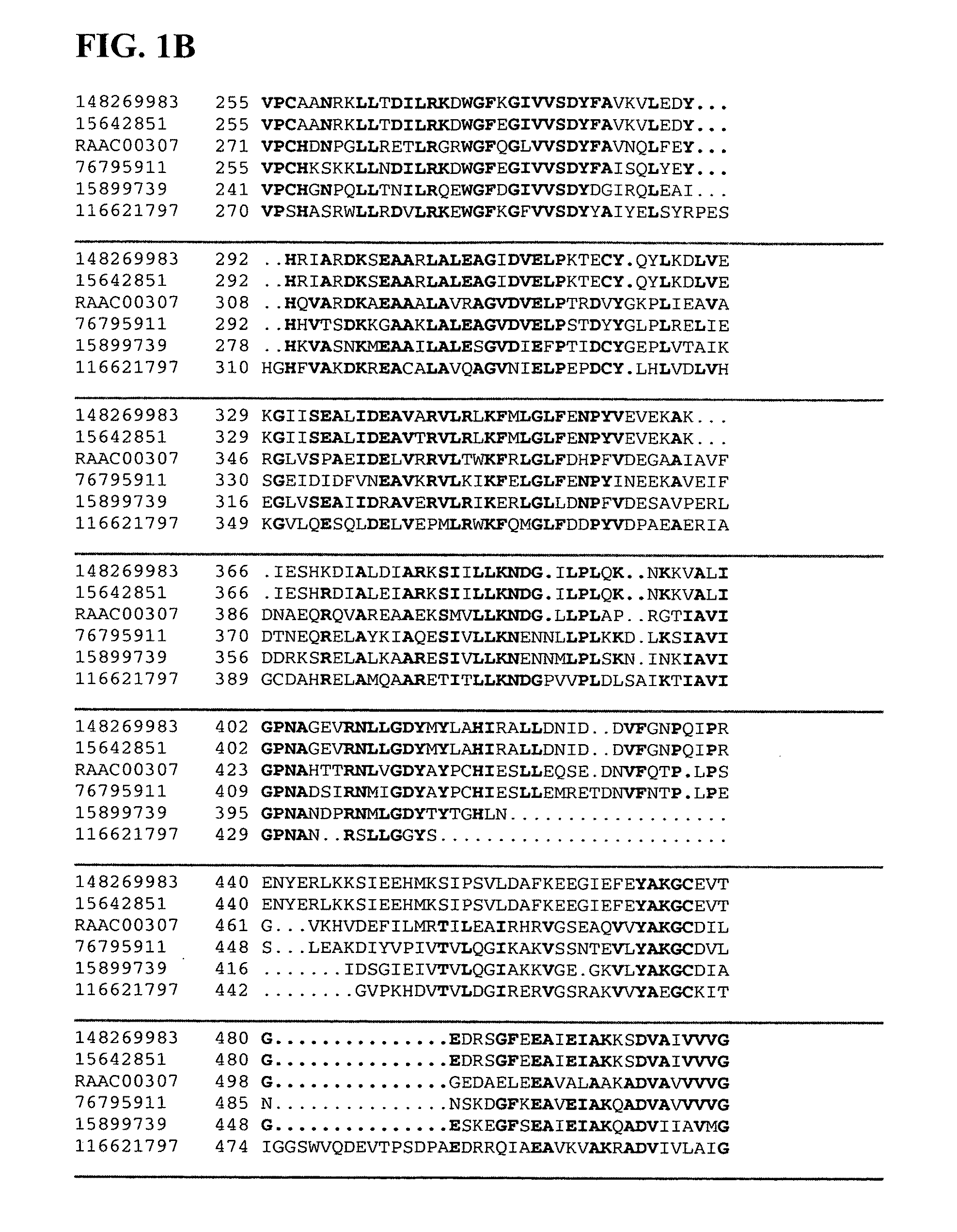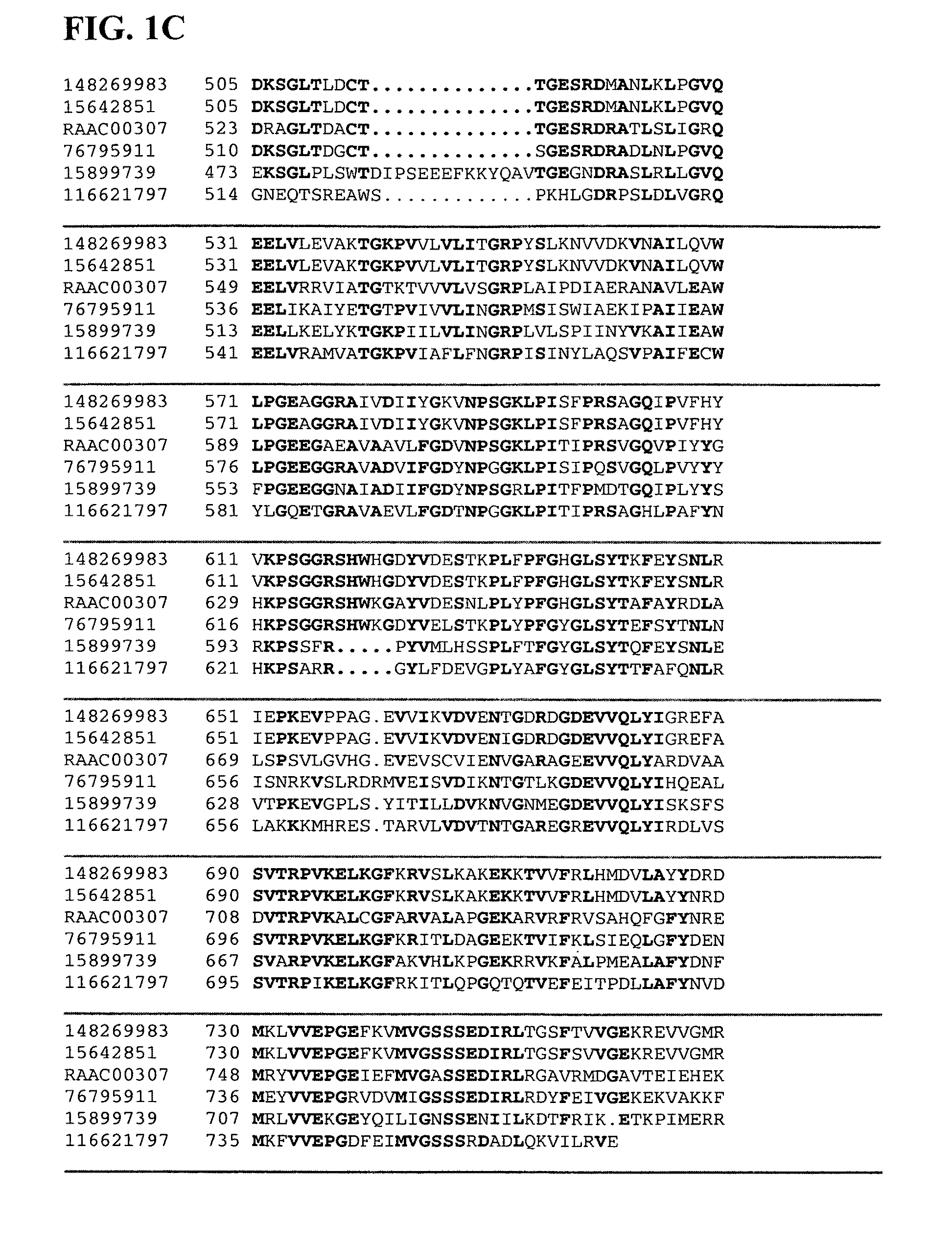Thermal and acid tolerant beta xylosidases, arabinofuranosidases, genes encoding, related organisms, and methods
- Summary
- Abstract
- Description
- Claims
- Application Information
AI Technical Summary
Benefits of technology
Problems solved by technology
Method used
Image
Examples
example 1
Isolation of Xylanase and Beta-Xylosidase from Alicyclobacillus acidocaldarius
[0158]Alicyclobacillus acidocaldarius produces extracellular xylanase(s) when grown on a medium that contains xylan as its sole carbon source. This organism has an optimum temperature range of 55° C. to 60° C. and an optimum pH of 3.5 for growth. Thirty liters of Alicyclobacillus acidocaldarius were grown on a minimal salt medium at a pH of 3.5 and 60° C. containing 0.5 g / L wheat arabinoxylan as the sole carbon source. The culture was grown to stationary phase and harvested by centrifugation to remove cells. The resulting supernatant was filtered through a 0.22 μm filter to remove any remaining cells. This supernatant was then loaded onto a cation exchange column (Poros HS, Applied Biosystems) at a flow rate of 7.75 mL / minute at room temperature. Bound proteins were then eluted off with a sodium chloride salt gradient from 0 to 1 M over five minutes and collected as a single fraction. This fraction was de...
example 2
Demonstration of Endoxylanase and Beta-Xylosidase Activities from Alicyclobacillus acidocaldarius
[0159]The endoxylanase and beta-xylosidase activities of the PCCF were tested at a temperature of 60° C. and at a pH of 2.0 with 3.95 g / L insoluble oat spelt xylan as the substrate. The results were compared to those from a parallel test of the endoxylanase activity of the endo-O-1,4-xylanase from Thermomyces lanuginosus (available from the Sigma-Aldrich Co., St. Louis, Mo., product number X2753), using insoluble oat spelt xylan at 4.19 g / L as the substrate and operated at a temperature of 50° C. and at a pH of 4.7. The appearance of carbohydrate oligosaccharides and monomers in the aqueous phase was monitored for 72 hours by HPLC. The products arising from enzymatic activity were identified by comparison with HPLC data from enzyme-free controls operated under the same conditions.
[0160]As expected, the Thermomyces lanuginosus enzyme exhibited endoxylanase activity, which acts by cleavin...
example 3
Demonstration of Beta-Xylosidase Activity in Concentrate Chromatography Fractions from Alicyclobacillus acidocaldarius
[0162]Thirty liters of Alicyclobacillus acidocaldarius were grown on a minimal salt medium at a pH of 3.5 and at a temperature of 60° C. containing 0.5 g / L wheat arabinoxylan as the sole carbon source. The culture was grown to stationary phase and harvested by centrifugation to remove cells. The resulting supernatant was filtered through a 0.22 μM filter to remove any remaining cells, and loaded onto a cation exchange column (Poros HS, Applied Biosystems) at a flow rate of 7.75 mL / minute at room temperature. One liter of the supernatant (pre-column) was reserved for testing of β-xylosidase activity prior to purification. One liter of the flow through (post-column) was reserved to test β-xylosidase activity that did not bind to the column. Bound proteins were then eluted off with a sodium chloride salt gradient from 0 to 1 M over five minutes and collected as a singl...
PUM
| Property | Measurement | Unit |
|---|---|---|
| pH | aaaaa | aaaaa |
| temperature | aaaaa | aaaaa |
| temperatures | aaaaa | aaaaa |
Abstract
Description
Claims
Application Information
 Login to View More
Login to View More - R&D
- Intellectual Property
- Life Sciences
- Materials
- Tech Scout
- Unparalleled Data Quality
- Higher Quality Content
- 60% Fewer Hallucinations
Browse by: Latest US Patents, China's latest patents, Technical Efficacy Thesaurus, Application Domain, Technology Topic, Popular Technical Reports.
© 2025 PatSnap. All rights reserved.Legal|Privacy policy|Modern Slavery Act Transparency Statement|Sitemap|About US| Contact US: help@patsnap.com



